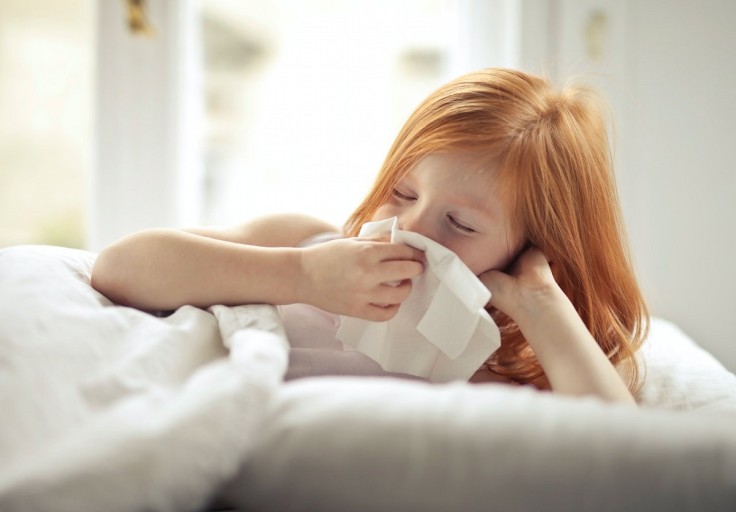You heard your child sneeze or cough for the nth time today. Now, you might be wondering if it is COVID-19 or just the usual allergy. If it happened before the pandemic, you would not be alarmed; however, since you know that the virus is nearly everywhere, you are not sure if your little one caught them or it could be that your child got exposed to allergens.
For your peace of mind, Parents talked to some experts on how to tell if your kid caught COVID-19 or allergies. Read on to find out their differences.
Allergic response
Our bodies produce antibodies and histamine when it perceives that there are threats. The immune system responds by producing allergies. A Columbia Allergy board-certified allergist and immunologist, Sanjeev Jain, M.D., explained that besides outdoor allergy triggers, there are also indoor sources that cause one to have allergies.
He said that people could be allergic to dust mites, pet dander, and mold. Others might also have allergies to trees, grasses, weeds that produce pollen.
Allergy symptoms to look out for:
- Runny nose
- Itchy nose
- Itchy and red watery eyes
- Sneezing
- Congested nose
- Mild sore throat
- Coughing
- Dark under-eye circles
When to tell if your child contracted COVID-19?
SARS-CoV-2 is the virus responsible for the respiratory illness called coronavirus or the more commonly known as COVID-19. Close contact with an infected person could cause the spreading of the deadly disease. Usually, symptoms would appear between two to 14 days after being exposed to the virus.
A Pediatric Associates board-certified pediatrician in Overland Park, Kansas, Natasha Burgert, M.D., explained COVID-19 cases in children. She said that they usually show mild to severe symptoms. She also noted that up to one-third of the children that tested positive with the virus do not show any symptom at all, based on recent studies.
COVID-19 symptoms, according to The Centers for Disease Control and Prevention (CDC), are as follows:
- Body aches
- Chills
- Cough
- Difficulty breathing
- Fever
- Gastrointestinal issues
- Headache
- Loss of sense of taste or smell
- Nasal congestion or runny nose
- Sore throat
What are the key differences between allergies and COVID-19?
A little sign or symptom that a person shows alarms the people around. If you are still confused as to how to tell the two apart, experts laid down the key points that you have to look out for to avoid rushing to the ER only to find your worries in vain. Read on to know when it is right to hurry to the doctor.

Allergies would not cause fever or body aches
Allergens rarely cause a person's body temperature to rise. Apart from that, one would never get chills or extreme fatigue when exposed to factors that cause histamine release.
Itch dominates allergies
Dr. Burgert said that itchy eyes, nose, or throat are usually caused by allergies. She noted that itch dominates seasonal allergies.
No sneezing in COVID-19
If your child is sneezing here and there, it proves that it is just some allergy because sneezing is not a symptom of COVID-19.
Try treating with antihistamine
If upon giving your child antihistamines stopped the symptoms, then it is not something to worry about.
Allergies are triggered by specific substances
A person with an allergy shows symptoms when in contact with the allergen. Removing that specific substance that causes the allergies could help the person improve conditions. In contrast, COVID-19 positive patients' conditions do not change their illness severity throughout the day, said Dr. Jain.
Allergies are predictable
Dr. Jain said that allergies usually come in a pattern. He explained that kids with ragweed allergies usually feel sick during the fall and that at springtime, pollen allergies attack. Indoor allergies, on the other hand, happen throughout the year.